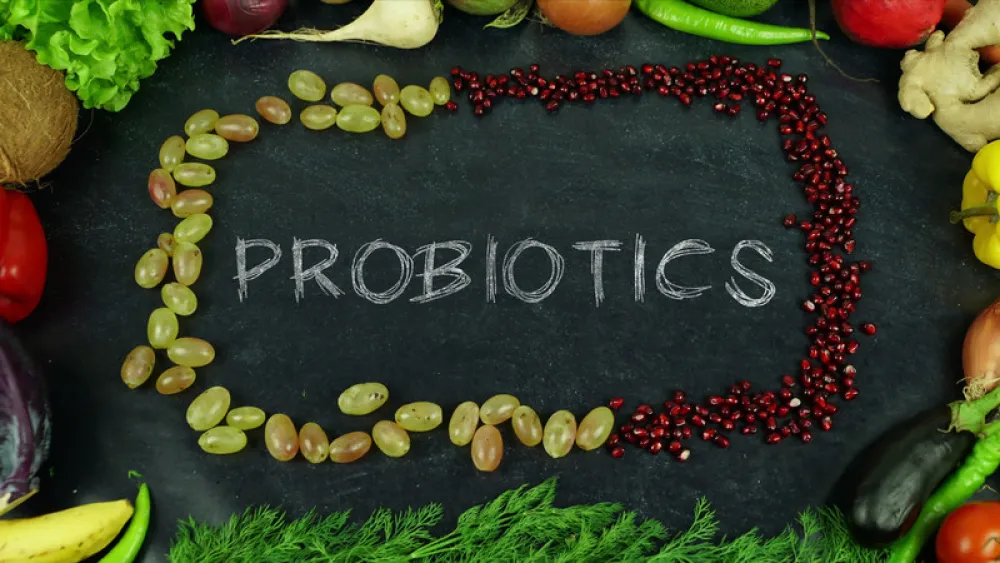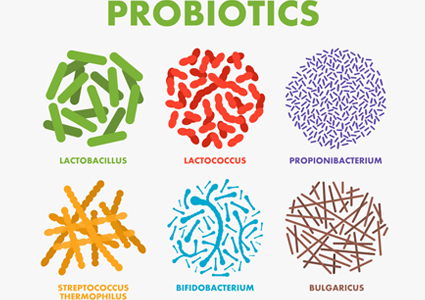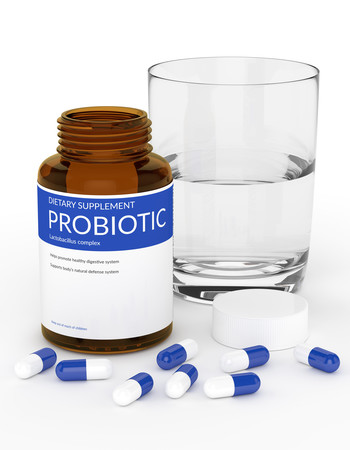Today's Medicine
Probiotics: Benefits of Good Bacteria


Bacteria often get a bad rap as harbingers of disease in humans, so many people are surprised to hear that there may be such a thing as “good bacteria.”
In fact, the human body has just as many, if not more, bacteria cells than human cells. The good bacteria, known as probiotics, play an important role in keeping us healthy.
Lately there has been increased interest in the potential health benefits of probiotics and, subsequently, an explosion in the probiotic market. So are these probiotic products the cure to all that ails you? Is the hype worth it?
What are probiotics?
Probiotic supplements with living bacteria are sold most commonly in pill form or in dairy products. They are meant to give health benefits to those who take them and are most commonly used to prevent or treat digestive, infectious and allergic conditions.
How do probiotics work?
 Despite lots of research, it’s not exactly certain how, or even if, probiotics work. Some theories include:
Despite lots of research, it’s not exactly certain how, or even if, probiotics work. Some theories include:
- Stopping disease-causing bacteria from growing
- Improving function of the intestines
- Decreasing inflammation in the body.
- Regulating the immune system
So far there is no good, convincing and consistent data showing that probiotics can prevent or treat medical conditions. However, they are frequently used and often promoted for these reasons.
The most promising data come from the use of probiotics to prevent diarrhea associated with antibiotics, including C. difficile diarrhea — a serious and sometimes life-threatening infection. Small studies show there may also be a benefit in the use of probiotics for inflammatory conditions of the intestines and irritable bowel syndrome. There’s also some limited evidence that they can help prevent eczema, an allergic skin condition.
What are the limitations of probiotics?
We still don’t know a lot about probiotics. For every study showing a possible benefit, there is another showing mixed or harmful results. Many studies are not well-designed or may not apply to every patient.
There is no single probiotic prescription. We don’t know which probiotic, what bacteria, how much, how often and for how long to treat or prevent any single disease. Probiotics are not approved by the FDA, so they are not regulated like usual prescription medications, and insurance companies often will not pay for them.
We also haven’t studied or reported extensively the safety of probiotics. For most healthy adults, probiotics are tolerated well with minimal side effects. However, for those with serious illnesses or weak immune systems, probiotics might cause dangerous infections.
Because of these reasons, and their lack of consistent clinical benefit, many guidelines do not recommend the use of probiotics for the prevention or treatment of diseases.
 Is the probiotic worth the money?
Is the probiotic worth the money?
Talk with your doctor. Although science is rapidly exploring new and exciting uses for probiotics, the enthusiasm for these supplements has outpaced the data to support them.
For most healthy adults, probiotics will probably not cause any harm, but they may not give you any lasting benefit. Most importantly, don’t risk your health by replacing proven medical treatment with unfounded practices.
If you have any questions about probiotics, talk with your Methodist Physicians Clinic primary care provider.


